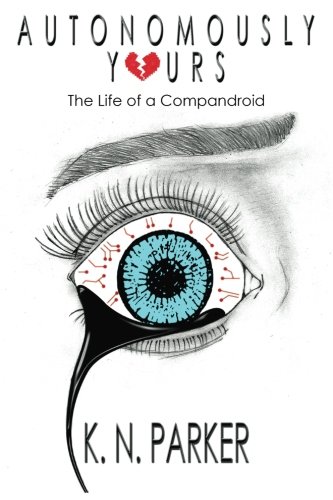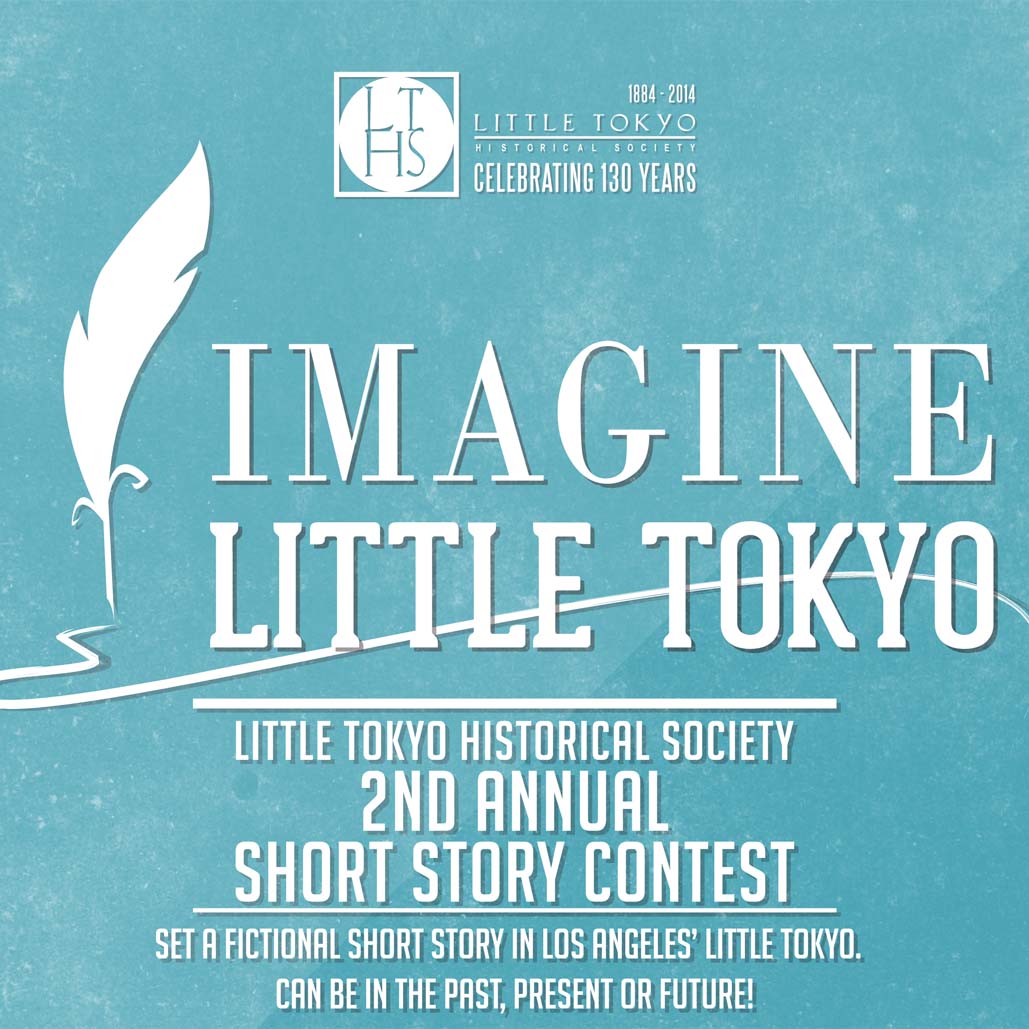This was my second short story I wrote for the 2nd annual local short story contest entitled "Imagine Little Tokyo." Our instructions were to use Little Tokyo, a historic section of Los Angeles, as the setting for a short story.
My story titled "Alice and the Bear", follows a woman by the name of Alice Miyamoto as she recounts her thoughts when she was a little girl living in Los Angeles during the internment of Japanese-American citizens, and her imaginary friend, a stuffed bear named Mr. Bearington who helped her survive her internment. I was a finalist in the running for 1st prize amongst 14 others who were also chosen, but I didn't know it until they sent me a certificate signed by the mayor of Los Angeles. That certainly was a surprise. Again, I lost, but it was fun writing this story. It stemmed from an idea I had for years. I've posted it below for your enjoyment. So, by all means, enjoy!
ALICE AND THE BEAR
One splendid, breezy weekend in Los Angeles, a great-grandmother by the name of Alice Miyamoto and her family took a trip down to Little Tokyo. The joys, demands, and rigors of life had kept her away for more than 30 years, and so the trip was much needed.
As Alice walked by shops and restaurants she was reminded of times past, when she was but a young girl—no older than her great-granddaughter—when she too walked these sidewalks long ago.
There were myriad shops and restaurants, just like there had been when she was small, but they were a little newer—some a little flashier—but no less enticing.
After lunch at a restaurant named Suehiro, they sat and had cups of nice, hot green tea. As Alice sipped her tea, she was reminded of when her father would take her on the weekends to a coffee shop here—no longer in existence—where they would sit for hours drinking green tea and eating sticky sweet mochi. Those were some of her favorite moments as a child.
Alice’s daughter suggested that they visit the Go For Broke Monument just behind Suehiro. Alice had thought it a wonderful idea, as she had not yet had a chance to see it.
As they walked down the street they happened upon a trinket store that caught the eye of Alice’s great-granddaughter.
The little girl pleaded to go inside as she tugged on Alice’s hand. How could she say no to the brilliantly adorable face that stared up at her? So she did not decline, and followed her into the store.
When inside, however, she was greeted by walls lined with the same strange, chubby stuffed animal: some small in size, some large, all grey with a white tummy, and a great big silly grin stretched across its face. At that moment Alice felt something odd, something familiar; nostalgia is the word that feeling goes by.
“Totoro!” exclaimed the great-granddaughter as she picked up one of the stuffed animals.
“What? What is its name again?” Alice pressed.
“Totoro. It’s an anime,” she said back.
Alice picked up the toy, identified as Totoro, and with an instant touch she was thrust back to her childhood, back to a time when she was but a four-year-old girl with a stuffed animal of her own: a black bear in a vest.
She remembered clutching her toy as she stepped onto that train to nowhere, scared of what was happening to her and her family, confused as to why they suddenly had to pack all of their belongings and move from their home.
She did not know the reason why for several years, which was good, for no girl that young should be made aware of such an atrocity.
When they arrived to wherever they were, Alice felt immediate dread. Their new surroundings were nothing like their original home, which was warm, colorful, inviting. Their new place, barracks as they were known, in contrast was drab, plain, cold.
She had no friends to play with, and did not feel in the mood to make new ones. Her sister was but a newborn at the time, not the age where one could have meaningful conversation, so, as you can imagine, Alice was a very lonely girl.
The days at the barracks were slow and bitter. Time slowed to a crawl, and to a child, that is worse than death. She spent her days and nights alone in a corner of her room drawing things on the floor with a bit of chalk she found on the floors of her classrooms, a sad, constant frown etched across her face as she did so.
Alice’s somber mood worried her mother so much so that it started to affect her own.
One night, as Alice lay upon her bed unable to sleep, a small voice called out to her in the darkness.
“Something troubling you?” it said in a hushed tone.
Alice sat up and looked around the room.
“Who’s there?” she whispered.
The owner of the voice stepped into Alice’s field of view and revealed itself to be her bear, only much bigger: almost the full height of their barracks, and nearly its width. He also now possessed the ability to converse.
“It is I, Mr. Bearington. Why are you awake?” he asked.
“I cannot sleep,” she answered.
“Of course you cannot sleep. Otherwise you wouldn’t be awake,” he said.
“Why can you talk?” she asked.
“Because you wish me to,” he answered.
“Why are you here?” she asked another question.
“Because you wish me to be,” he said, quite logically, and she seemed satisfied with his answers.
She stood up and stared at him, and said, “I have to go to the bathroom.”
“That is splendid for you, but why did you feel the need to share that with me?” he asked.
“I want you to come with me.”
“My dear, we have only just met and that is much too much an intimate experience to share with you at this juncture in our relationship.”
“But, it’s cold and scary,” Alice said.
“As for the frigidness of the weather I cannot disagree, but why is it scary?”
“When I go outside to use the bathroom there’s a big scary light that follows me,” she said.
“I noticed no such light. Let me see what you mean,” he said, and he made his way to the door, Alice following close behind.
As he searched around, he looked back to her and said, “I see no light, my dear.”
“That’s because I’m not out there yet,” she said.
“Well then, step outside and show me this light,” he said, and her face filled with calamity.
“I can’t do that.”
“My dear, how can I be sure of this light when I have no evidence of it? Step outside and show me.”
She thought about it before she did, and, not wanting to disappoint Mr. Bearington, took a single step outside.
No light.
She took another.
Still, no light.
She took several more steps and that’s when the light exposed itself. Alice hurried back into the house.
“That?” he asked.
“Yes,” she said.
“My dear, that is nothing to be afraid of. Where I come from we call that a ‘spotlight.’ And do you know what a spotlight means?”
She shook her head. He signaled her to make a move. She apprehensively made her way back outside as the light once again appeared out of nowhere and shined itself on her.
“My dear, a spotlight means that you’re a star!” he hollered out to her, “And where I come from, stars almost always use the lavatory without fear. But be careful to hide yourself when doing so, your adoring public needs not see such things.”
Her face lit up as she heard this. She then went and did her business confidently, and carefully, after which she returned to her room without fear of the spotlight.
“Now, get to bed,” he said to Alice as she returned, “Stars need their beauty sleep.”
She nodded, and climbed into bed.
“Will I see you again?” she asked Mr. Bearington.
“Perhaps you will, perhaps you won’t. You’ll just have to wait until morning to see,” he said, and plopped himself in the corner with a great thud that shook the whole place, which rocked Alice to sleep.
She awoke the next morning to find Mr. Bearington in the same place she left him.
“Good morning,” he said, “I trust you slept well. Your parents have been up for quite some time.”
He pointed at her mother, who was readying breakfast, and her father, who was reading a paper at the table.
“Mother, isn’t he wonderful? He can talk now,” said Alice to her mother.
“Who?”
“Mr. Bearington,” said Alice, and all the mother could see was a plain old stuffed bear sitting in the corner.
“Stop that now, it’s not healthy,” said her mother.
“But—”
“No buts. Stop it this instant. He can’t speak,” she scolded again.
“Leave her be,” said her father, “It’s her way of coping with this stupid war,” he said.
“Watch your language,” said her mother, for what was said was not the word stupid, but because Alice was a small child unable to comprehend the actual word spoken, stupid was the word she heard instead.
“Let her cope anyway she wants. I chose to cope with this cigarette,” he said as he slipped on a coat and stepped outside for a smoke, her mother following his lead.
“Why are they fighting like that? Is it my fault?” she asked the bear.
“It is both your fault and not your fault at all,” he said, confusingly.
“They seemed mad because of me.”
“Of course they seemed mad. It is called emotion. It’s something expressed when someone feels something for someone else. Sometimes it’s good; sometimes it’s bad. But it shows they care for you. Although, sometimes too much emotion is not appreciated by anyone,” he said.
“Do you have emotion?” she asked the bear that stood before her.
“Of course I don’t. Where I come from we have no emotion. Besides, I am but a stuffed bear in a vest. What need have I for emotion?” he said with a laugh.
Time went on and years passed, and as Alice grew older so did her sister, but three years on she was still unfit for stimulating conversation. Good thing for Alice, then, Mr. Bearington was around almost everyday.
One morning, Alice suggested a tea party to Mr. Bearington, who found the idea wonderful. Alice also wanted to invite her father and mother.
“Father, join us for tea,” she said to him.
“I can’t,” he said. “Work. That’s what they call it anyway.”
“But, father, I want to have tea just like we used to in Little Tokyo,” she said, longingly.
This brought sympathetic feelings to her father, who leaned down and said, “When we get out of this place, we’ll go have tea and mochi everyday in Little Tokyo. I promise.” With that, he kissed her forehead and headed out the door.
She then asked her mother, who lay in bed, turned toward the wall.
“Mother, let’s have tea,” Alice suggested, but her mother said nothing and stayed in the position she had stayed in for months, as depression had gotten the best of her.
“Leave her be,” said the bear. “What tea shall we be having today?”
“Black. I really want green, but…” she said as she trailed off.
“But what?” the bear pressed.
“Green tea is too Japanese and the army men might get mad,” she said.
“Nonsense. Where I come from we drink green tea without fear of men in silly clothing. If you want green tea then we shall have green tea,” he said, and, with a smile, Alice made exactly that for her sister, herself, and her big, fluffy friend.
From time to time it would snow in this strange, un-Californian place, and it was extremely foreign to Alice, who came from a place that had no snow to speak of.
One such snowy day, Alice overheard her parents murmuring to themselves about something called a rumor, and the rumor they spoke of was about an end to the war and an end to their internment, whatever that meant.
Alice, not wanting to hear such confusing talk, went and sat near the door and watched the foreign snow fall all around her barracks. Mr. Bearington joined her.
“It’s like God’s dandruff,” she said, vocalizing her thoughts to Mr. Bearington—such is a young girl’s imagination.
“Poppycock,” Mr. Bearington retorted, “Where I come from we call this ‘free snow cones.’”
Alice’s face lit up with that familiar brightness and she immediately stood to run outside, before Mr. Bearington stopped her.
“My dear, where are you going?” Mr. Bearington asked.
“To eat free snow cones.”
“Why would you do such a fool thing? Everyone knows you have to get the flavoring from warm places like California first. Wait until you return home.”
“When will that be?” Alice asked, hopefully.
“Soon, I suspect,” was all he said.
One day, Alice awoke to find the place devoid of her old friend. She looked under the bed, and in the corner, but he was nowhere to be found. Finally, she ran to the door to see him walking away in the snow.
She ran after him screaming, “Where are you going?”
He turned and said, “I’m going home, back to where I came from.”
“But, you belong here,” she cried after him. “This is where you come from.”
He said nothing.
She continued to run, until she heard a voice say, “Stay right there or I’ll shoot!”
She did not care where the voice came from. All she cared about was her friend leaving her forever. So, she kept going.
“Come back, please!” she screamed, tears running down her face.
“Stop. I won’t warn you again!” said the scary voice from some high place.
But, Alice did not stop, running faster and faster until the thickness of the snow finally slowed her pace, causing her to trip face first into it.
“Don’t move. If you take one more step I will be forced to shoot you!” said that horrid voice, but Alice did not listen. She stood up, and was about to take that step she was told not to, when Mr. Bearington returned to her.
“Alice, I lied. Where I come from we have plenty of emotions and I have many for you,” he said, and he hugged her tightly as Alice cried into his big, furry belly.
“Where I come from, we hide our emotions. But you shan’t hide yours,” he said, and she nodded. “I shall be back one day, but for now, I must leave. Until then, have your fill of snow cones, use the bathroom accordingly, and drink lots of green tea, all without fear.”
“But, I have no one else,” she said.
“But, you do. You have your father, your sister, and your mother,” he said, and he pointed to the woman who was running toward them in the snow, screaming obscenities at the sky.
Alice turned her head to see her, but when she turned back, Mr. Bearington was no more, lost to the whiteness of the landscape.
As Alice’s senses returned to the present, she found herself crying into the stuffed animal, identified as Totoro, as her great-granddaughter looked at her in confusion.
“Why are you sad?” she asked Alice.
“I’m not sad. These are tears of happiness. I’m showing emotion,” she answered.
And Alice’s great-granddaughter, being a four-year-old child, seemed satisfied with this answer.
And so, Alice bought two of Totoro—one for her great-granddaughter, and one tear-stained one for herself—and the family visited the Go For Broke Monument and paid their respects to those that fought for their country, despite their circumstances, and a grand day was truly spent by all.




